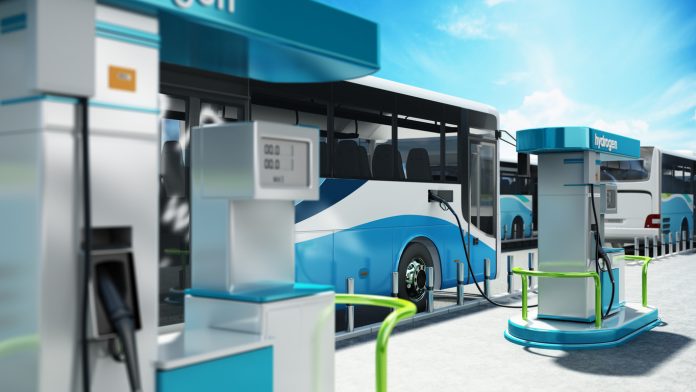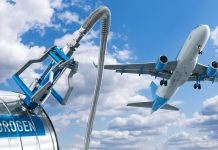Ian Reed, Category Manager for Fleet at YPO, discusses what progress is being made in the decarbonisation of public sector transport
How the UK will reach its ambitious net zero targets is a topic of much debate. While much remains yet to be decided, one clear area is that decarbonising every aspect of the UK economy is no longer an if but a when.
Central government isn’t just setting climate targets. Local authorities across the UK have their own policies and plans to reduce carbon emissions, each with its own political mandates, funding levels, and regional buy-in.
A significant focus for decarbonising the UK is transport, the largest sector emitting greenhouse gas (GHG) emissions. (1) With local government across the country, from combined authorities to district councils, now increasingly responsible for much of our transport, the question of how we decarbonise these networks is significant.
Diesel domination
The vast majority of current fleets operate using diesel. Latest-generation diesel engines are as efficient as ever, with after-treatment systems significantly reducing harmful air quality emissions from vehicles like particulate matter (PM) and NOx. However, if we are to reach our ambitious net zero targets, we can no longer rely on a transport system powered predominantly by fossil fuels.
Transport decarbonisation: Progress made
Some areas within transport have made more progress than others. For instance, the calm buzz of buses across the UK is evidence of the major increase in electric bus fleets. According to SMMT data, 45.1% of new registrations of single and double-decker buses in 2023 were either battery-electric or hydrogen-powered. (2)
Moreover, the UK Government announced an additional £500 million investment to deliver 1,200 UK-made zero-emission buses.
At YPO, we’ve worked with councils across the UK to supply electric-powered vehicles. The electrification of much of the UK’s buses is evidence that when the market is bolstered with access to green, cost-effective solutions, councils across the UK are more than willing to make significant decisions.
What next for transport decarbonisation?
While we should celebrate the success of early transport decarbonisation, attention must also be paid to where significant progress is needed. The reality is most local authorities across the UK simply do not currently have the budgets available to commit to major decarbonisation initiatives.
There is, however, still tangible progress that can be made. Working with our member authorities across the North of England, councils have made substantial strides in cutting emissions. One of the ways this is achieved is by switching diesel fuel for hydrotreated vegetable oil (HVO) in compliant technologies, which is a cleaner, high-quality biofuel. Moreover, lighter vehicle applications like vans, street sweepers and plant equipment are also seeing a switch to electric, zero-emission power solutions.
Progress is both achievable and worthwhile, but councils also face several barriers to cutting transport emissions. For instance, without funding for infrastructure and guarantees of required grid connectivity at a local level, there will be limits to widespread fleet decarbonisation – a holistic approach that considers both obstacles and opportunities is, therefore, crucial.
Collaborating with councils for transport decarbonisation
It’s no secret that a significant injection of capital expenditure would meaningfully impact the drive to net zero. However, given the current state of public finances, many councils won’t be relying on this.
Instead, councils can find partners in industry and partners able to highlight meaningful steps for progress. For instance, working to improve procurement processes can allow councils to make decarbonisation improvements step-by-step.
YPO’s Dynamic Purchasing System (DPS) offers one such route to this. Via this method, we update supply without going through rounds of tenders and can provide compliant routes to market for a range of technologies. The 1,066 Alternative Fuelled Vehicles DPS has provided electrified vehicles to local councils, one of many areas where we work with local authorities to supply decarbonised technologies that suit the councils’ specific needs.
A blanket approach to decarbonising the sector could place undue pressure on councils. On the other hand, a procurement strategy that prioritises flexibility and pragmatism will help ensure the nation’s transport network is well-placed to meet emissions targets while realising the cost-saving benefits of greener technologies.
The race to deliver greener transport will ultimately not be won in one fell sweep. By working with industry to receive expert support and enjoy ready access to supply, councils will be on the road to reaching meaningful transport decarbonisation.
References
- Transport and environment statistics: 2023 – GOV.UK
- What is behind the success of electric buses in the UK – electrive.com











